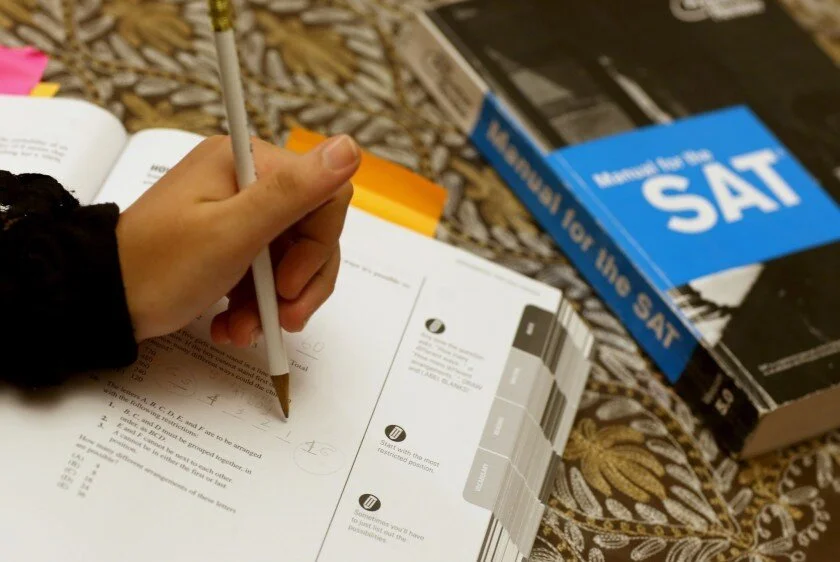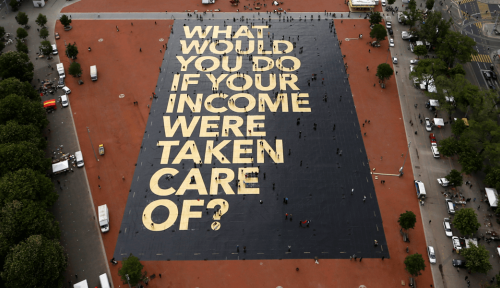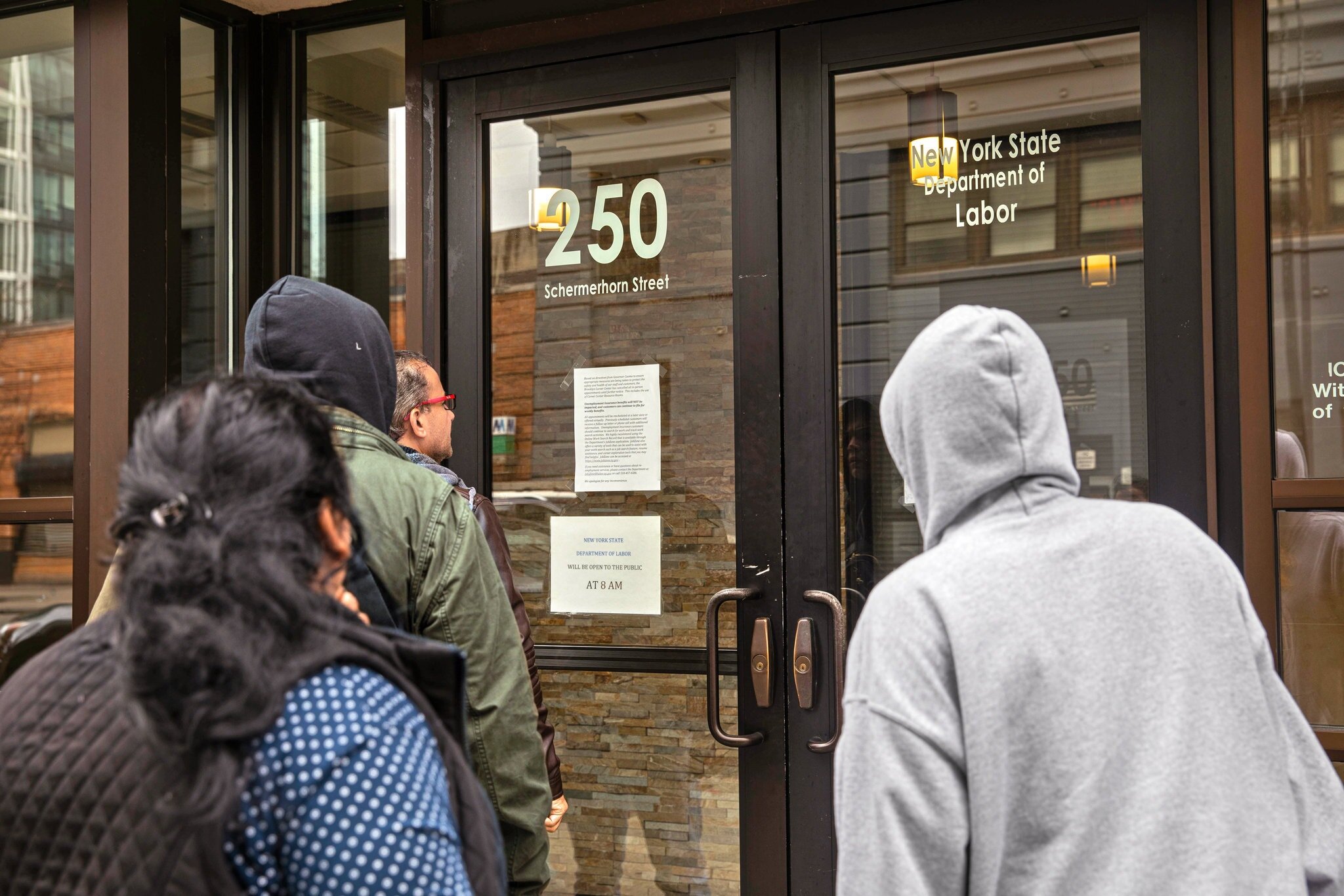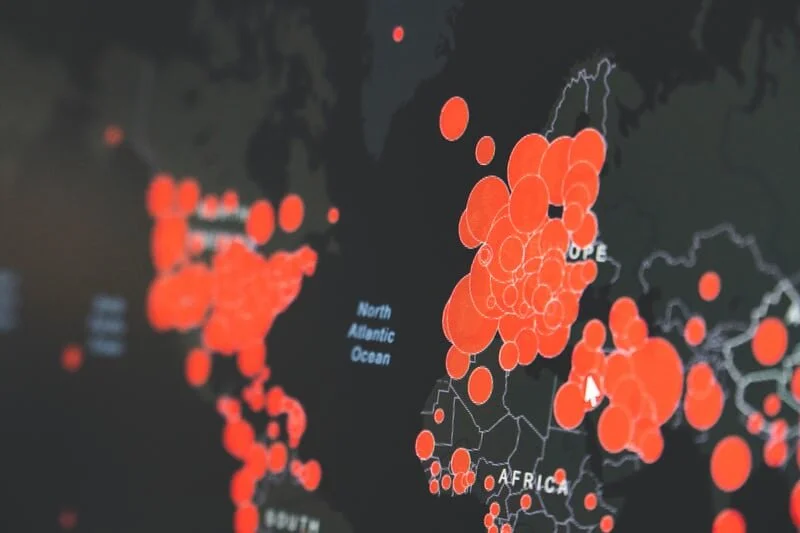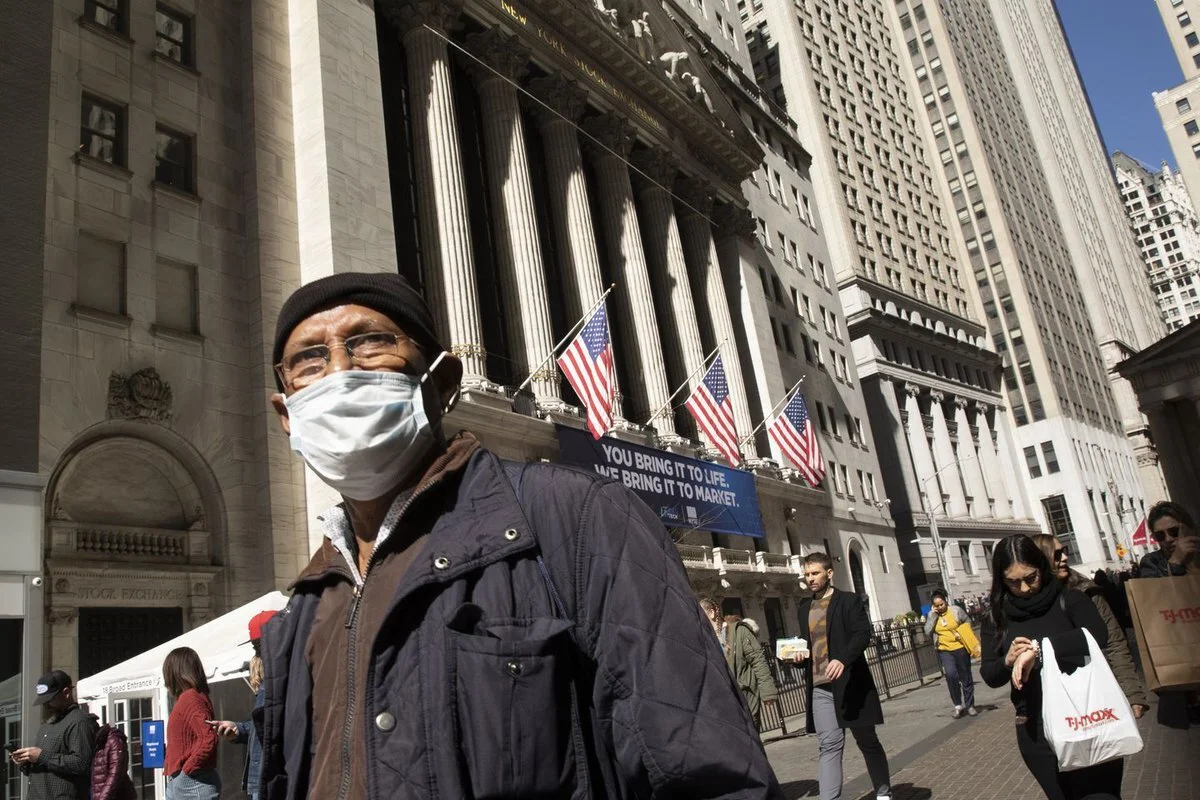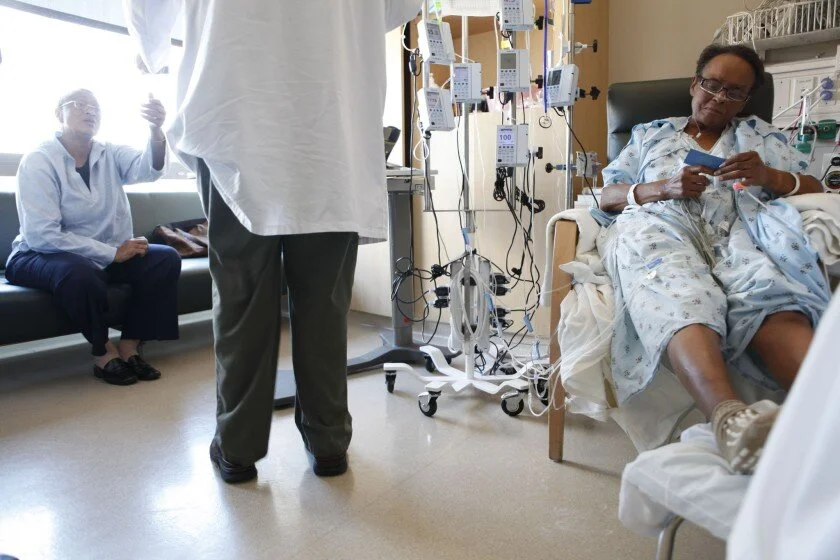This fall, 57% of California voters voted to reject the restoration of affirmative action in college admissions. O-Lab fellow Zach Bleemer’s research shows that the ban on affirmative action in California has had the effect of deterring Black and Latino students from applying to college. The NY Times cited this work in an October editorial. Read the Times piece here, and take a look at Bleemer’s research!
Jesse Rothstein: Graduates Starting Their Careers in a Recession will Face Long-Term Economic Scarring
Jesse Rothstein’s research on the long-term economic scarring of the Great Recession was cited in a Washington Post column by Catherine Rampell. Rampell argues that, without significant new economic stimulus to mitigate the effects of the recession, today’s college grads will face long-term negative impacts on earnings, health, and a range of other outcomes.
Check out the Op-Ed here.
Read more of Rothstein’s research on economic scarring here.
Sol Hsiang on The Economic Damages of Climate Change
Sol Hsiang’s research at the Climate Impact Lab was featured in the New York Times Magazine cover story this September. The data suggests that the impacts of climate change on the poorest Southern counties could lead to economic damages greater than a third of their total GDP. The article explores the mass migrations that such damages could invoke.
Take a look at the full article here!
Ellora Derenoncourt and Claire Montialoux on Wages and Racial Equity
Recent research by Ellora Derenoncourt and Claire Montialoux reveals how increases in the federal minimum wage benefited Black workers. In recent decades however, the racial wage gap has increased again. Their work was cited in a recent NY Times column by David Leonhardt. Take a look!
Sol Hsiang on global COVID response policies: No Human Endeavor Has Saved So Many Lives in Such a Short Period of Time
O-Lab Affiliate Sol Hsiang, and his collegues at the Global Policy Lab, have produced new research on the lives saved due to COVID response policies and behaviors. The team looks closely at 6 countries and estimates that response policies have prevented a total of over 500 million COVID infections.
The work was published in Nature and Hsiang discussed the findings on the Rachel Maddow Show.
Jesse Rothstein: On the SAT and ACT Admissions Requirement
O-Lab’s Jesse Rothstein, along with Michael Kurlaender (UC Davis) and Sarah Reber (UCLA), urged the UC Regents to reconsider the SAT and ACT as a heavily weighted component of admission for students. Decades of research have shown that SAT and ACT test results are strongly influenced by a student’s race, income, and parent education levels. Rothstein argues that the Board should instead use a state assessment for K-12 students known as Smarter Balanced (already in use in California and several other states) because it has less bias against disadvantaged students.
Read the LA Times article here.
Hilary Hoynes: Universal Basic Income
How can we design income support policy to protect the most vulnerable citizens during both good times and bad? Interest has grown in universal basic income as a solution, but it has drawbacks, and evidence is lacking. Hilary Hoynes and Jesse Rothstein examine how a universal basic income would play out in the United States, as well as in other developed countries, if implemented on a large scale. Knowable Magazine interviewed Hilary Hoynes about the benefits and challenges of such a program.
Read the full interview on: Knowable Magazine
Hilary Hoynes: Safety Net Spending and the COVID-19 Crisis
The COVID-19 crisis is intensifying long-standing debates about whether our safety net provides adequate coverage for the most vulnerable. Safety net spending is typically geared more toward people with jobs than those who are unemployed, and Hilary Hoynes warns that this imbalance will lead to worsened outcomes for our neediest children.
Read the full article on: New York Times.
Emmanuel Saez and Gabriel Zucman: Congress and the Coronavirus Pandemic
Emmanuel Saez and Gabriel Zucman urge Congress to legislate more forceful measures during the COVID pandemic to avoid another Great Depression. These include increased job protections, robust business support, universal healthcare, and excess profit taxes.
Read the full article on: New York Times.
Catherine Wolfram: It’s a Good Time for Women to Win the Nobel Prize
The recent Nobel Prize for Economics highlighted the valuable role of rigorous experimental research in building evidence for policy-making. It was also an important milestone for women in economics. Catherine Wolfram discussed both recently with Resources for the Future.
Read the full interview on: Resources Magazine
Emmanuel Saez and Gabriel Zucman: Proposal for a Massive Government Intervention
Emmanuel Saez and Gabriel Zucman have been strongly advocating for a more robust federal response to the economic dislocations of COVID. In this piece at the Guardian, they press for the federal government to guarantee wages and lost revenues to business facing shutdown.
Read the full article on: The Guardian and
Danny Schneider and Kristen Harknett: Paid Sick Leave During COVID Crisis
Danny Schneider and his colleagues at the Shift Project have provided critical data on the scale of the problem of unstable work and lack of paid sick leave. The New York Times has drawn upon their research in pressing for rapid expansion of paid sick leave. Take look at this opinion piece and this short video on the experience of low-wage restaurant workers in the time of COVID.
Jesse Rothstein: Paid Sick Leave During COVID-19
Jesse Rothstein and Jared Bernstein contributed an opinion piece to the Washington Post calling for the government to guarantee wages for workers without the protection of paid sick leave.
Read the full article on: Washington Post
Governor Newsom Appoints Hilary Hoynes to Council of Economic Advisors
Congratulations to Director Hilary Hoynes on her appointment to Governor Newsom’s Council of Economic Advisors! “The Council will advise the Governor and Director of the California Department of Finance Keely Martin Bosler on wide-ranging economic issues and deepen relationships between the Administration and academic researchers to keep California moving toward an economy that is inclusive, resilient, and sustainable.” Read more here and here.
VOX: Increasing the Minimum Wage Reduces Suicide
Increasing the minimum wage and expanding a tax credit for low-wage workers may prevent more than 1,200 suicides each year, according to a new working paper by a team of UC Berkeley researchers including affiliate Michael Reich. Read VOX’s article on the study here.
Edward Miguel Talks Cash Transfers with KCBS Radio
Affiliate Ted Miguel speaks with KCBS Radio on his research about the positive ripple effects that cash transfers have on entire communities. Listen in!
The Costs and Benefits of Geoengineering
Solomon Hsiang spoke with Marketplace about the fascinating potential and possible consequences of geoengineering. Listen in!
A Computer Algorithm Fuels Racial Bias in the Healthcare System
A study by affiliate Ziad Obermeyer finds that an algorithm used by health insurers to make crucial care decisions for millions of people has significant racial bias when predicting the health risks of black patients. LA Times covers his research in this article.
The French Economist Who Helped Invent Elizabeth Warren’s Wealth Tax
The New Yorker writes a detailed profile on affiliate Gabriel Zucman, highlighting the story behind his influential wealth tax proposal and his beginnings as an economist, including his background in wealth inequality. Read the full article here.
How to Tax Our Way Back to Justice by Saez and Zucman
For the first time in a hundred years, the working class paid higher tax rates than billionaires. How can we achieve economic justice? Find out in Emmanuel Saez and Gabriel Zucman’s new opinion piece for The New York Times.
